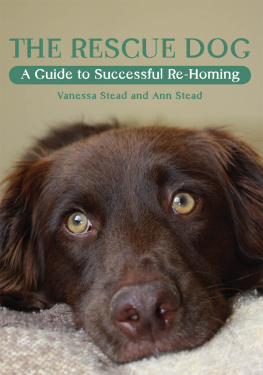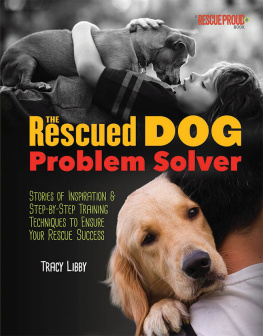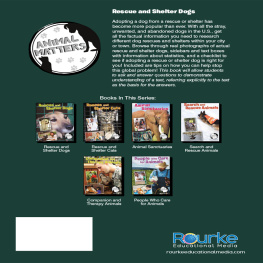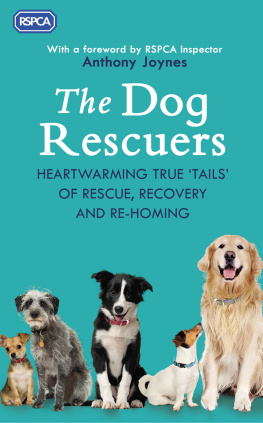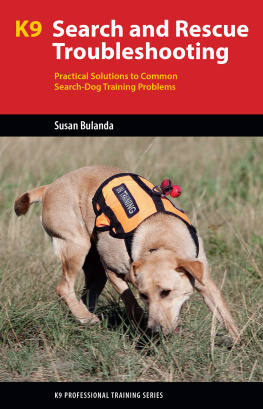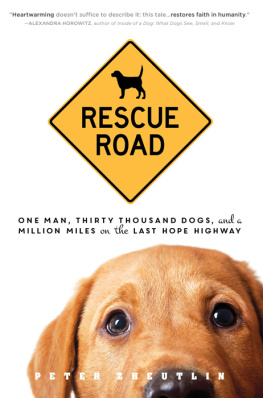THE RESCUE DOG
A Guide to Successful Re-Homing
Vanessa Stead and Ann Stead

THE CROWOOD PRESS
First published in 2010 by
The Crowood Press Ltd
Ramsbury, Marlborough
Wiltshire SN8 2HR
www.crowood.com
This e-book first published in 2014
Vanessa Stead and Ann Stead 2010
All rights reserved. No part of this publication may be reproduced or transmitted in any form or by any means, electronic or mechanical, including photocopy, recording, or any information storage and retrieval system, without permission in writing from the publishers.
British Library Cataloguing-in-Publication Data
A catalogue record for this book is available from the British Library.
ISBN 978 1 84797 965 0
CONTENTS
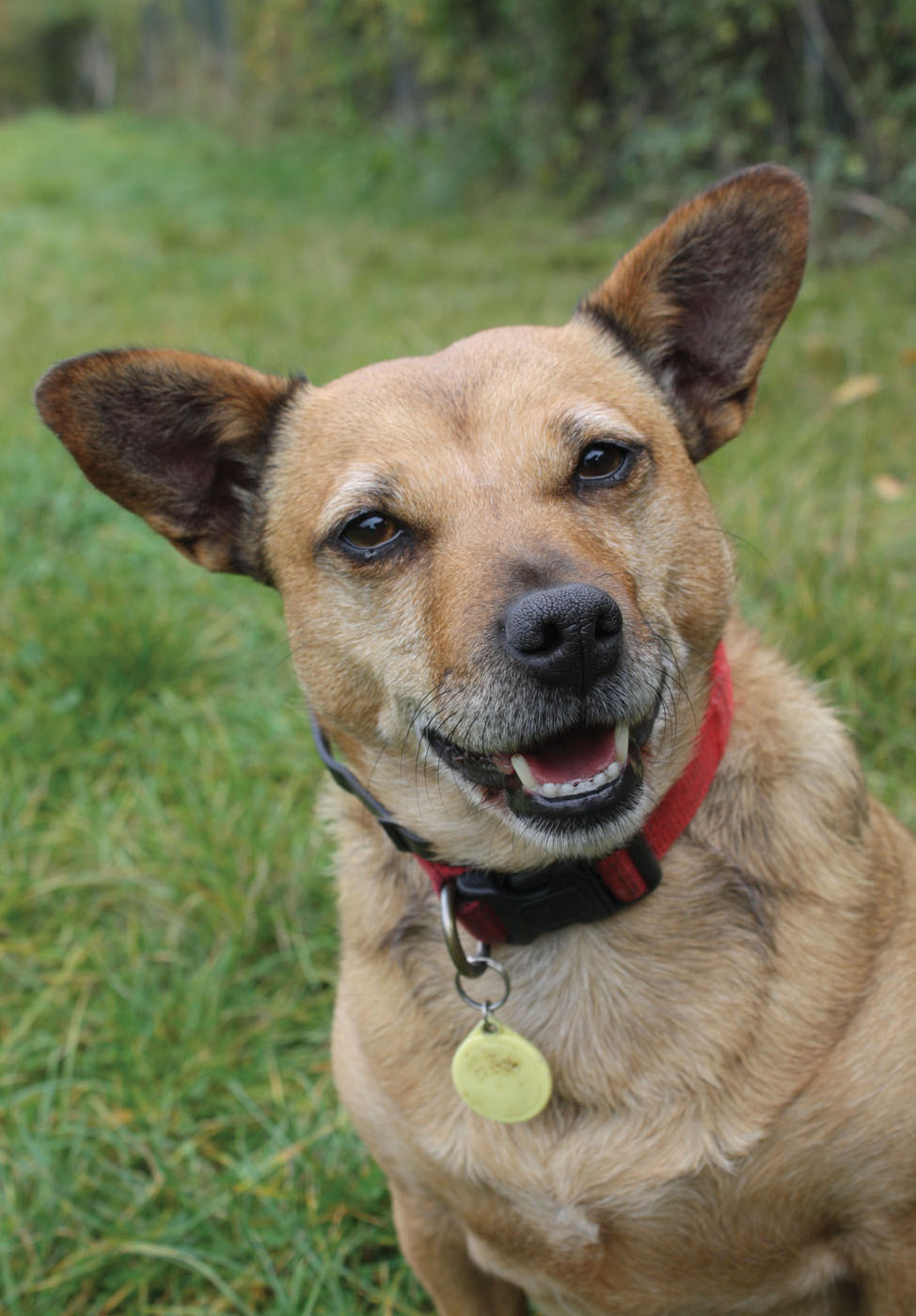
INTRODUCTION
You have already made two major decisions: you have decided to get a dog, and you have decided to re-home one from a rescue organization.
THE RESCUE DOG
Many people believe that rescue dogs are troubled, traumatized strays with long-lasting problems. While this view may be justified for some, in reality there is a tremendous amount of variation between the dogs in re-homing centres all over the world. The dogs are there for a large and varied number of reasons, most of which have little to do with the actual dog. The most common reasons are extremely relevant in the selection of a suitable companion.
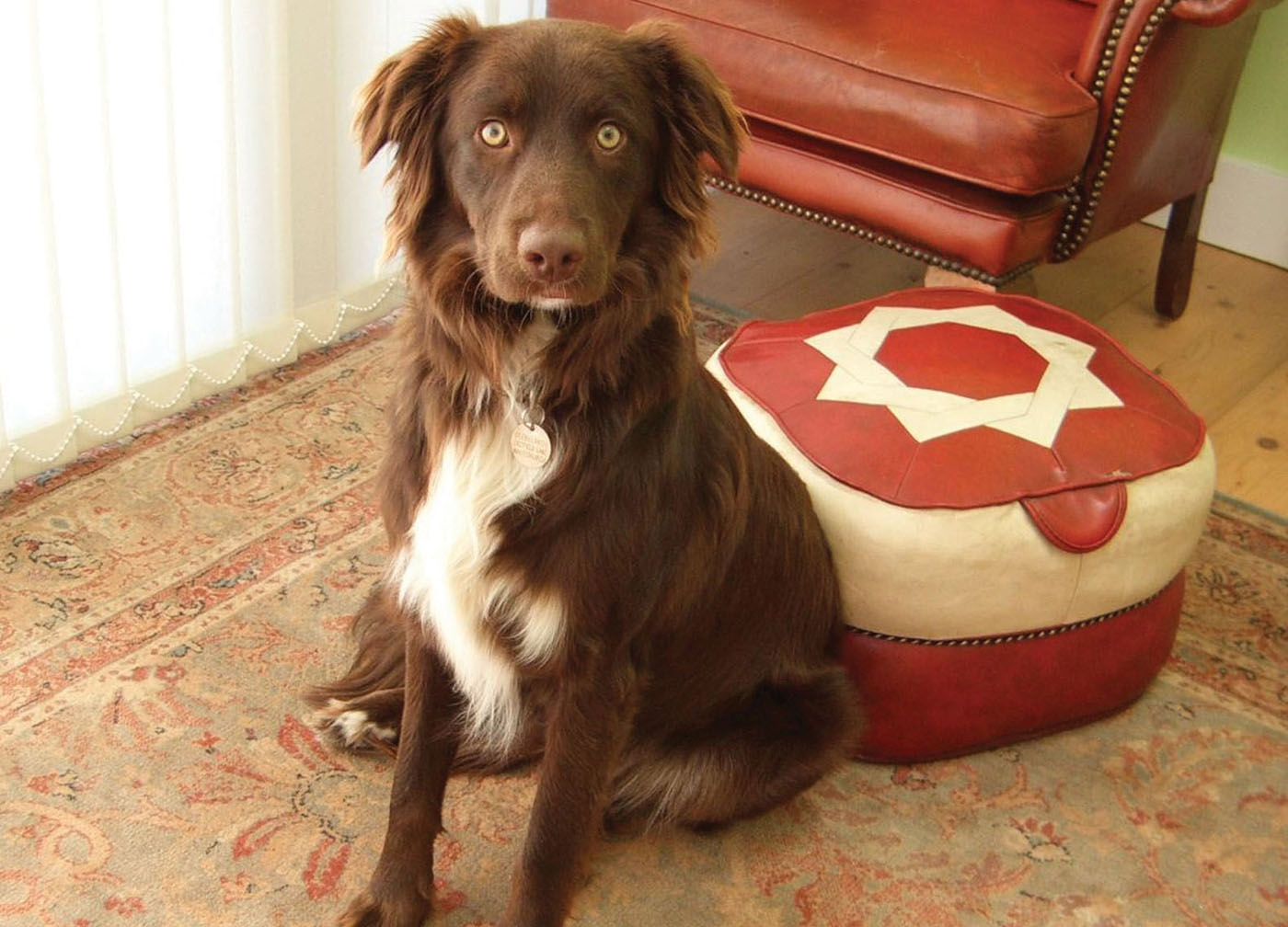
Before you even step through the door of the re-homing centre, you need to have thought about what sort of dog you are looking for.
There are many reasons why a dog might enter a re-homing centre:
It may be a stray, found wander ing the streets by a dog warden. |
It may have been rescued from deliber ate human neglect and cruelty. |
Its owners may have divorced and can no longer look after it. |
Its owner may have become ill or died. |
Its family may have run into debt, lost their jobs or their homes and can no longer afford to keep it. |
These dogs often come with a full repertoire of tricks they can do, as well as their favourite bed and blanket. |
Many accidental matings result in puppies whose owners struggle to find home for them; these puppies may end up in a re-homing centre. |
There are also dogs that have become too old, and may even have been cast aside to make way for a younger model. |
Some owners cannot cope with their dogs behaviour but a dog who is a problem for one family may be anothers characterful companion. |
The Advantages of Re-Homing a Rescue Dog
Where better to start your search for your ideal dog, the dog most suitable to your lifestyle and requirements, than amongst the thousands in re-homing centres looking for a home. When you look down a row of kennels you become aware of the variety in appearance, age, size, activity level and character between dogs. From pure-bred dogs to unfathomable cross-breeds, the huge diversity offers you a fantastic selection from which to choose the most suitable companion for your family. During your search you will have the additional benefit of trained staff to help you find the ideal match and perfect companion.
If you have set your heart on a particular breed it is possible to find one in many of the re-homing centres around the country. However, there are also breed-specific rescue organizations that concentrate on a single breed and are often associated with a breed club. Most breed-specific rescue organizations do not have dedicated kennels and may use foster homes, or may re-home directly from the previous owner.
If you are in search of a dog to suit a specific age group, from children to the elderly, you can find one in a re-homing centre. Many families with children are in search of a dog to complete their home. The wide range of dogs from puppies to seniors and quite literally every age group in between means that you can find the right dog for you.
Dog ownership has been found to be very beneficial to the elderly. A study of 938 people aged sixty-five and over found that those who owned pets had fewer visits to the doctor than those who did not. Dogs offered additional advantages such as reducing stress, and providing companionship and an object of attachment, which is associated with better mental health and a higher sense of morale. Feeling secure is particularly important for the elderly, and this is provided much more by a dog than any other pet. Many of the dogs in rehoming centres would make excellent companions for the elderly, ticking all the right boxes with regard to characteristics.
Many professionals are involved in ensuring the rescue dog is ready for rehoming, and the majority of re-homing centres vaccinate. Some rescue organizations, such as the Dogs Trust, also neuter their dogs. Furthermore they will help you resolve any initial difficulties by offering training tips and other advice.
Re-homing a dog from a rescue organization is a fantastic thing to do from an ethical perspective. Giving a home to one of the thousands of dogs in need is a huge step in helping reduce the problem of unwanted dogs. You are also undoubtedly making a life-changing difference to a living creature when you re-home a dog that has been selected specifically for your family.
While there are many differences between rescue dogs, there is one thing that unites them: they all need to be given the chance of a better life. Successfully re-homing a rescue dog can be a rewarding experience in itself, but it has yet another wonderful side effect: you may just find the friend of a lifetime.

An intelligent, calm and friendly lurcher puppy, which adores people: a perfect family companion.
1 MAKING THE DECISION
There are many decisions to be made during the process of re-homing a rescue dog, and organizing your thoughts, feelings and requirements is a good place to start. In the first part of this chapter we will take you through the decisionmaking process, helping you to focus gradually on the characteristics of the dog that will suit you and your family. We will then lead you through the re-homing procedure so you know what to expect and are prepared for this serious commitment.
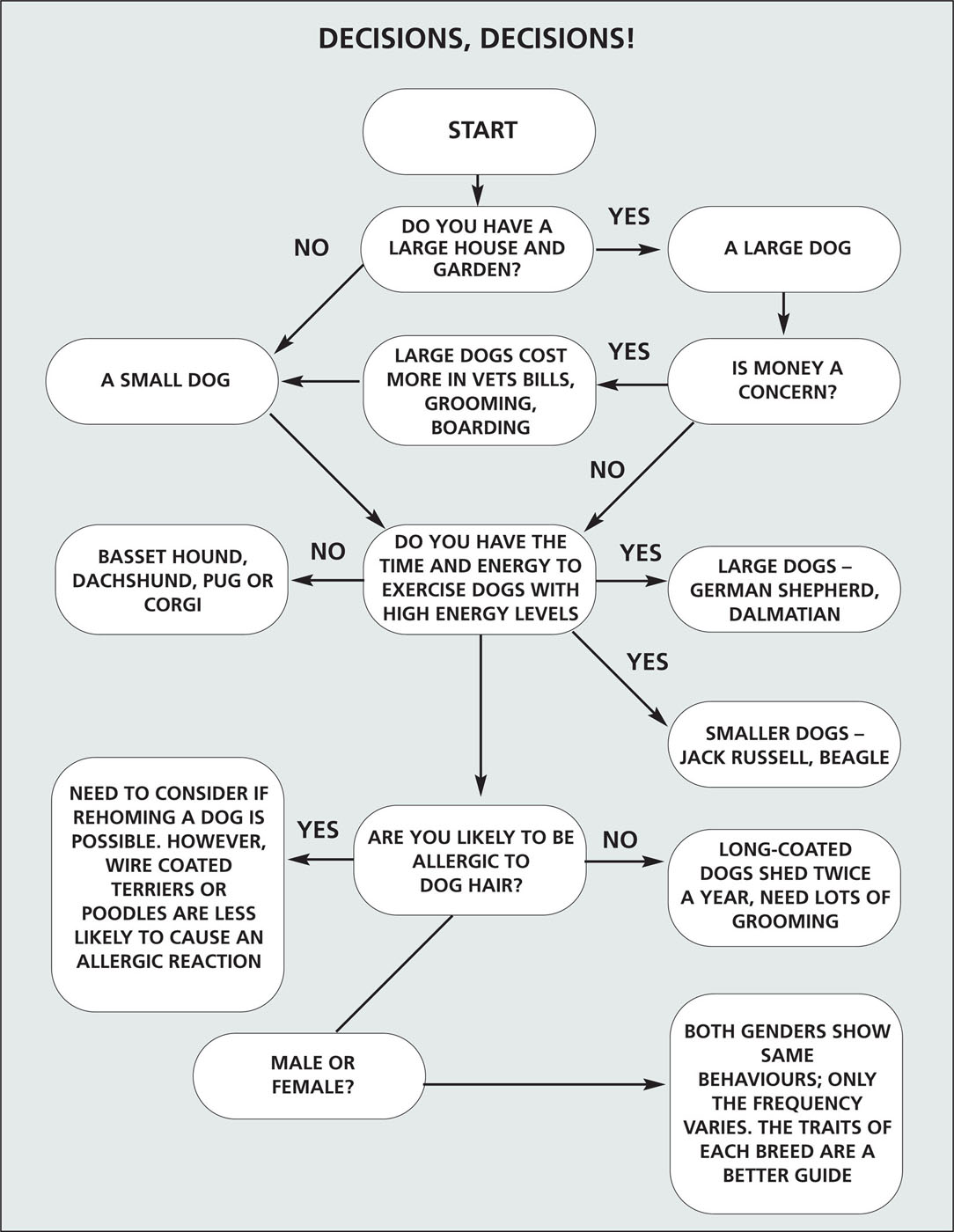
This flow diagram will help you decide which characteristics are best suited for your circumstances. You can discuss them with the re-homing centre, and your notes will help when filling out the forms most centres use to facilitate a good match.
A SECOND THOUGHT
All dogs to some degree or another can cause mess in your home. They just cant help their paws attracting mud, nor resist rolling in smelly substances, often the smellier the better! Some dogs cant avoid dribbling water from their bowls all over the house and they cant help the occasional toilet accident when you have been out a little longer than you should have been.
This is the reality of owning a dog, and if any of this sounds intolerable, you need to consider whether your priority is a tidy home or a happy dog. Of course you can have both, but it may well require more frequent housework. This is one aspect of re-homing a dog that you really must consider before you sign on the dotted line.
Next page
